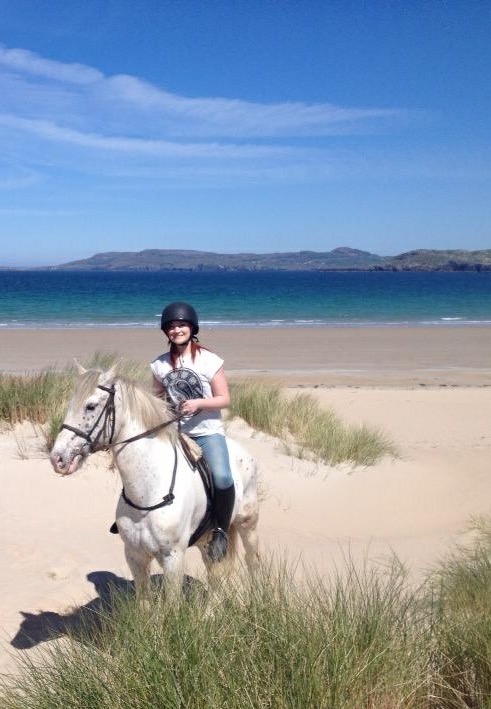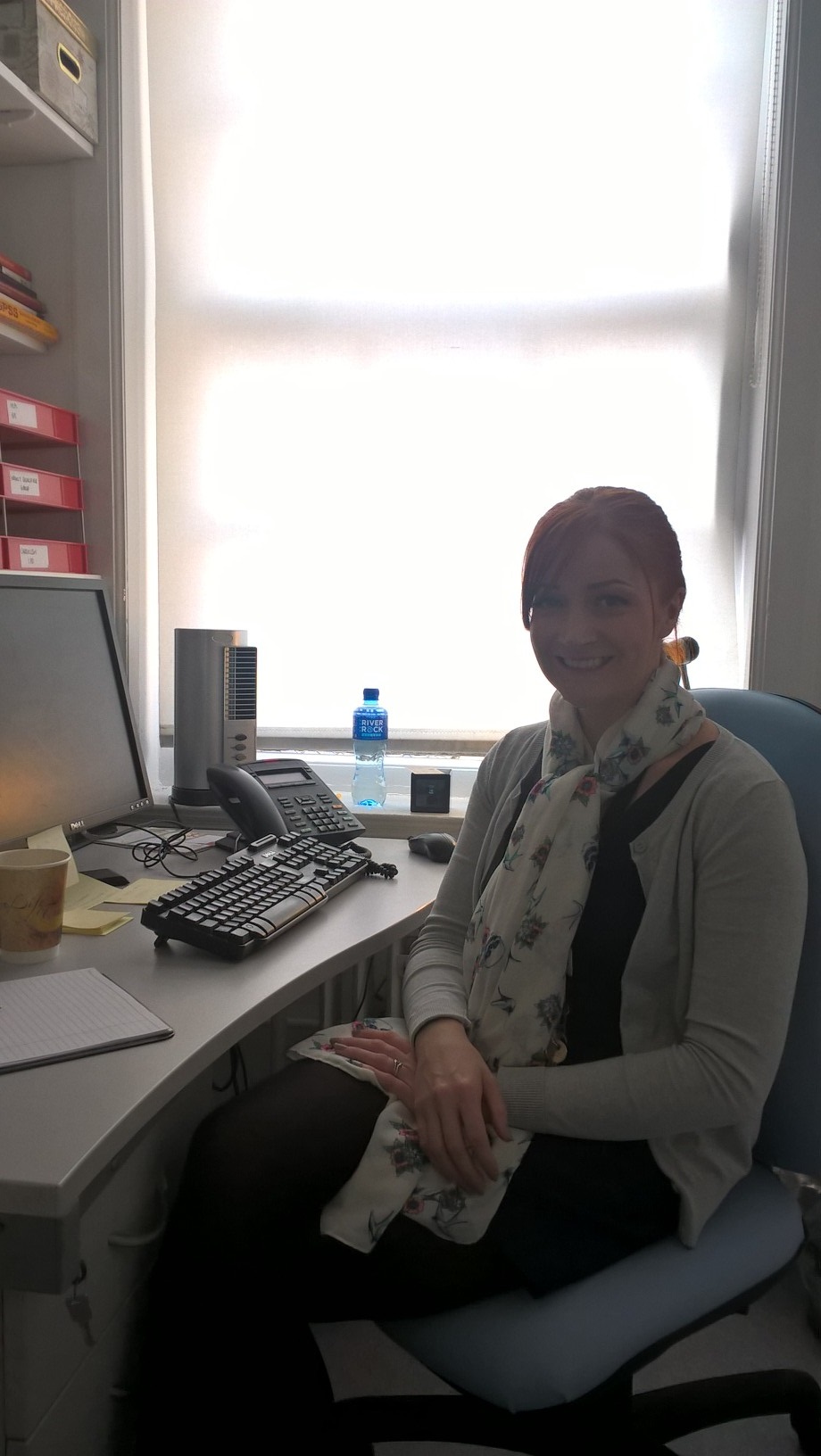Ash McAleese is the Clinical Psychologist attached to Clark Clinic. Ash has been in this role for a year and a half and has also been a great source of support and advice for a number of Children’s Heartbeat Trust initiatives including our Heart Books and Transition services.
There was a while when I was in primary school that I wanted to be a vet, but I have wanted to be a Clinical Psychologist since I was a teenager. A few years ago my little sister found a diary of hers that she had kept when she was 9 and I was 14. She had asked me lots of questions and recorded them in her diary. When we found it a few years ago, she asked me if I remembered what answers I had given her at the time. I remembered that when I was 14, my favourite colour was green, my favourite TV show was the X-Files and my favourite band was …. very embarrassing … but I was surprised to hear that I wanted to be a Clinical Psychologist way back then.
After doing my A-Levels, I went to University to do a degree in Psychology. A Psychology degree is really broad, it covers a little bit of Clinical Psychology but also many other aspects of Psychology. I ended up leaving my degree a little confused about what area I wanted to learn more about. I did some travelling in my 20s, worked for a few years within different services and with lots of people from different backgrounds, while at the same time doing more qualifications in psychological research. I really liked research and learning more about interesting topics, but I enjoyed working with people even more, so decided to become a Clinical Psychologist.
To be a Clinical Psychologist you need another degree, so I went back to University to do my doctorate. At that point, I had been studying psychology and working with young people, adults and families for over 10 years, so I was starting to get a sense of what I really enjoyed doing. I had always enjoyed working with children and young people, so when I saw this post I applied for it straight away and have been here since.
The Clark Clinic team are really great; they have got to know so many families over the years. From all this experience, they know that sometimes having a heart condition can lead to feelings of some difficult emotions and can have an impact on how we develop through different stages in our lives.
As well as all the medical and physical aspects that someone with a heart condition has to think about, there can be some difficult emotions that people experience; like feeling worried, sad, anxious or scared. This can be tricky for a young person who maybe is learning how to fit their condition into their lives with so many other things to think about like school and friends. It can also be hard for families who maybe have some really big worries about the future, or have experienced challenges in the past.
My role in the team is to help families with those things if they get a little too big, so that they can get back to what matters to them most. I meet with young people and their families and together with them, try to find ways of overcoming, supporting and understanding some of the things that can be really challenging.
I don’t know if I have a typical day, which is great. I like knowing that no two days are the same. I think that is because no two young people or families are the same. The people I meet and the things we talk about are always very unique to that person.
I meet with the Clark Clinic team throughout the week, offering advice and support when I’m needed. The rest of my time is usually spent either on the ward with families, or meeting families who are at home but come in to the hospital to see me. Sometimes I meet with the young person and it’s just me and them. Sometimes we meet all together as families, sometimes I just meet parents, siblings or even Grannies and Grandas.
A big part of my job is called ‘talking therapies’. That means that we talk about things like emotions, behaviours and situations and through talking, we can explore and understand things better and try to learn ways of coping with the difficulty.
I think that would really depend on the parent, family, child and what was important to them at that time. Different things will be important to different families, especially at various stages. A parent of a teenager with a heart condition will likely be thinking some different thoughts to parents of a baby or child who have recently learnt about their heart condition.
I think that ultimately, if you ask a parent what is most important to them, they will say the health and happiness of their children. So one of the most important things I can say is that it’s not only normal to worry about your child, it’s very natural and to be expected. It can be an emotionally very difficult experience to be on an unpredictable journey; trying to find ways of coping with challenges and worries. But support is always there if you need it.
There are so many things that make my job a great one. The best thing for me is the people. A really lovely part of my job is feeling part of the community of young people who have a heart condition, their families and the support network around them. I have met some amazing people and am very privileged to be in a role that allows me the space and time to hear and explore their stories with them. Another satisfying part of my job is seeing someone face a challenge and coping really well with it. Or getting to know a young person and feeling inspired by their bravery.
The most recent perk of my job was getting a lovely Clark Bear of my own from Clark Clinic! He is so cute and sits at home now on my book shelf.
I think being able to take the time to relax is really important. In such a busy world we can get really easily caught up in a state of jumping from one thing to the next. I used to like doing art to relax, although recently I got a colouring in book and it’s very relaxing! I really love animals and being outdoors, so I spend a lot of time out walking and hiking with my dog. She is called Sasha and she just turned 11 (although that seems kind of old, she still thinks she’s a pup!). I love travelling, seeing new places and I enjoy some sports like archery and yoga.


